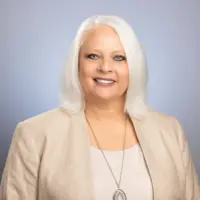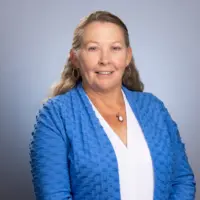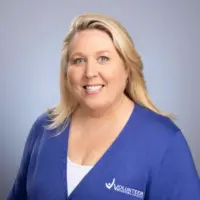About The Guidance Center Murfreesboro
The Guidance Center is an outpatient treatment center for behavioral health in Murfreesboro, Tennessee. That means they treat mental health issues along with drug and alcohol addiction and similar needs. This location is part of the Volunteer Behavioral Health network.
As I mentioned, this facility is an outpatient treatment center so you’ll live at home and come to the center for your treatment. For addiction, they can help with individual and group therapy to help you understand your addiction and work through the challenges in your recovery journey.
They have an intensive outpatient program (IOP), too, which is a structured program where you come to the center several days a week for treatment. This can be a good step down from residential rehab or an option if you don’t need the intensity and immersion of residential treatment.
As part of their addiction treatment, this facility has medication assisted treatment (MAT). This is an option for people who have opioid addiction or alcohol addiction. It uses specialized medications to reduce your withdrawal symptoms and cravings and it’s a useful technique alongside therapy.
I think it’s important to note that this facility can help adults as well as kids and teenagers. Everything here is individualized so they can set you or your child up with the services you need. The network also has other levels of care in other locations like detox centers, so they can connect you with higher levels of care if you need. I also think it’s notable that they have specialized services for veterans, and that they have telehealth options.
The reviews for this treatment center aren’t great. Multiple people say that the management treats the employees poorly and, in some cases, it causes clients to lose therapists that they have come to trust and respect. Some clients do have positive experiences here, so your experience could vary.
Latest Reviews
Rehab Score
Other Forms of Payment
Medicare is a federal program that provides health insurance for those 65 and older. It also serves people under 65 with chronic and disabling health challenges. To use Medicare for addiction treatment you need to find a program that accepts Medicare and is in network with your plan. Out of pocket costs and preauthorization requirements vary, so always check with your provider.
Medicaid is a state based program that helps lower-income individuals and families pay for healthcare. Medicaid covers addiction treatment so those enrolled can use their coverage to pay for rehab. When a program accepts Medicaid the client often pays very little or nothing out of their own pocket.
Self-pay involves paying for treatment out of your own pocket. You can use savings or credit, get a personal loan, or receive help from family and friends to fund your treatment. If you don't have insurance or your insurance plan doesn't cover a specific program, self-pay can help ensure you still get the care you need.
Financial aid can take many forms. Centers may have grants or scholarships available to clients who meet eligibility requirements. Programs that receive SAMHSA grants may have financial aid available for those who need treatment as well. Grants and scholarships can help you pai for treatment without having to repay.
Addiction Treatments
Levels of Care
Outpatient rehabs enable clients to receive care without leaving their home, workplace, and community. Clients typically receive intensive addiction counseling, including individual, group, and family therapy. Many programs promote clients' long-term sobriety through recovery-focused life skills training and ancillary services, such as peer coaching. Medication assisted treatment (MAT), including medication induction and maintenance, are common in outpatient care. Most facilities offer multiple levels of care to accommodate clients' evolving needs, including intensive outpatient (IOP) and standard outpatient programming.
Clients receiving support in a rehab aftercare program typically have abstained from drugs or alcohol for a period of weeks or months and have completed high-level (often inpatient) treatment. Drug rehab aftercare is designed to support clients in maintaining their sobriety as they re-engage with their ordinary lives at home, in the workplace, and in the community. Services are highly individualized and evolve with clients' changing needs, but generally include peer coaching and relapse prevention.
Clients in intensive outpatient programs (IOP) receive robust, personalized care to support their reintegration into their community. Clients stepping down from inpatient treatment frequently enroll in IOP before entering standard outpatient care or community-based recovery programs, such as AA. Intensive outpatient treatment generally involves between nine and 20 therapeutic hours weekly, with the frequency and duration of sessions decreasing as clients stabilize. IOP services commonly include counseling, recovery education, holistic therapies, and medication assisted treatment (MAT).
Clinical Services
Typical cognitive behavioral therapy in Tennessee involves recognizing negative thinking and learning techniques to change that thinking and create new, positive behaviors. Strategies may include SMART goals, journaling, and situation exposure.
If you participate in motivational interviewing in Tennessee, your therapist will focus on four key strategies: open questions, affirmation, reflections, and summarizing. Rather than confront or warn you to change, the clinician will allow you to explore your own motivations and decide what changes you may need to make in your life.
To quit smoking, you can use nicotine replacement therapy and gradually reduce the amount of nicotine you consume. This allows your brain and body to adjust so you can reach your goal of breaking free from cigarettes in just a few weeks.
Family therapy uses a structured environment to address the complexities of addiction and the negative influences it has on the family unit. Therapists work with family members to develop effective coping and communication strategies that support their loved one's recovery while also focusing on the health and well being of each family member.
Men and women in Tennessee undergoing one on one individual therapy sessions focus on understanding their unique needs and challenges. They do this under the guidance of an experienced therapist who can help you identify and address addiction triggers as well as create personalized relapse prevention plans. This offers you a customized path to a successful recovery journey.
In Tennessee, group therapy sessions for drug and alcohol addiction typically involve skill development to help you learn communication techniques and relapse prevention strategies. These strategies support your transition into the community and help you maintain long term sobriety.
While engaged in couples therapy in Tennessee, you'll learn how to trust, communicate, forgive, and manage emotions. Developing these skills can be beneficial at any time during the relationship, but they are particularly crucial when facing life challenges.
Staff & Accreditations
Staff

Phyllis Persinger
President & CEO

Gala Murray
Chief Compliance Officer

Angie Hampton
Chief Administrative Officer

Aaron Hall
Chief Information & Technology Officer

Dawn Carlton
CFO

Missy Johnson
Chief Human Resources Officer

Richard French
Executive VP

Amanda Cook
Chief Business Development Officer
Accreditations

The Substance Abuse and Mental Health Services Administration (SAMHSA) is a branch of the U.S. Department of Health and Human Services. Established in 1992 by congress, SAMHSA's mission is to reduce the impact of substance abuse and mental illness on American's communities.
SAMHSA Listed: Yes
Contact Information
1504 Williams Drive
Murfreesboro, TN 37129